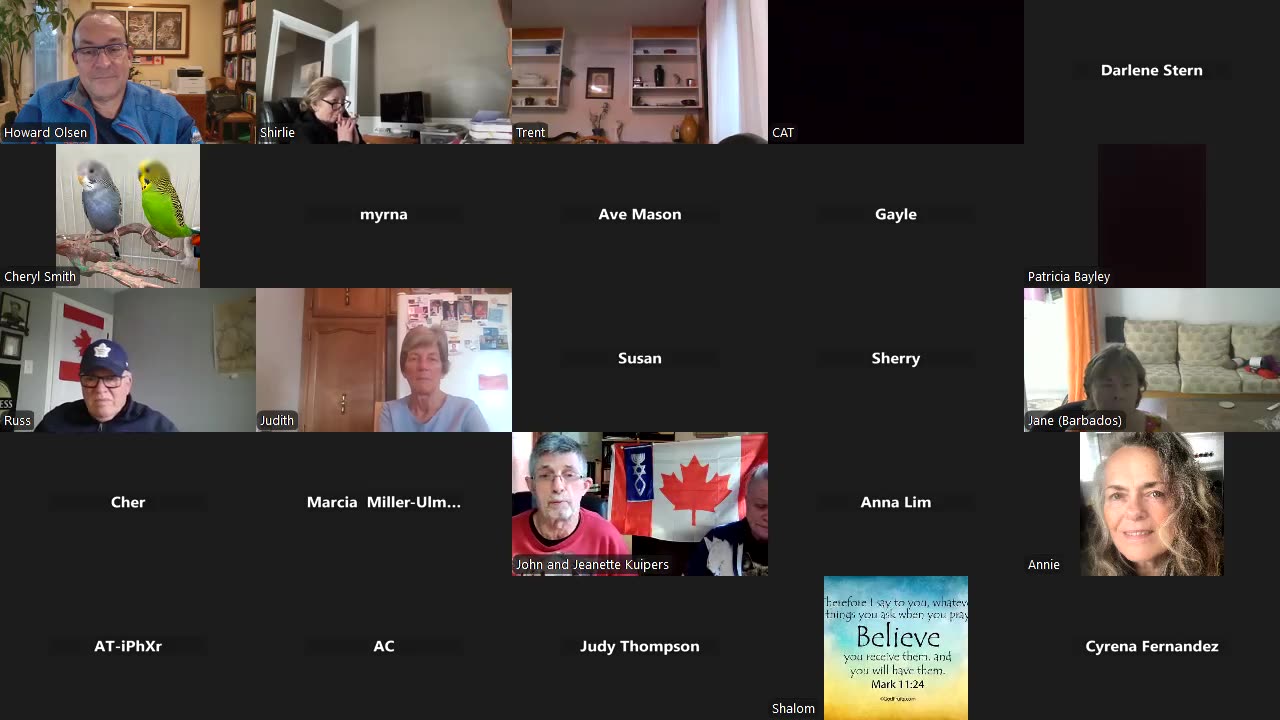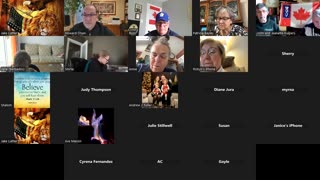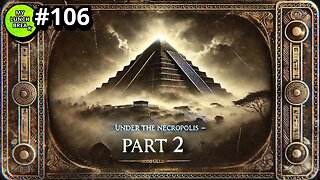Premium Only Content

The Prince of Persia Has Fallen - Making Sense of Syria Today
The Prince of Persia Has Fallen: A Reflection on Current Events and Spiritual Warfare
The world is witnessing significant events in the Middle East, particularly regarding Syria and its leadership. This blog post delves into the spiritual implications of these events, drawing parallels with biblical scripture, specifically the Psalms and the prophetic words of Amos. We aim to explore the themes of spiritual warfare, the power of prayer, and how these ancient texts resonate with today’s geopolitical climate.
The Context of Current Events
This past weekend, headlines reported that Damascus has fallen, and Assad has sought asylum in Russia. Such dramatic shifts in power prompt reflection on spiritual dynamics at play. The phrase "the prince of Persia has fallen" resonates deeply, echoing a time when spiritual forces were actively engaged in the affairs of nations.
Reflecting on a previous season of prayer against the "prince of Persia," we acknowledge the fervent prayers of the righteous that have been lifted, believing that they have availed much. Just as in biblical times, we find ourselves in a spiritual battle, facing unseen rulers and authorities that seek to influence and control.
The fact that Aleppo, Idlib and the Syrian capital of Damascus has fallen and that Assad and his family has been forced to take asylum in Russia is proof and evidence that Iran has had it’s military capability capped. Israel’s antagonist Iran was responsible for 90% of Assad’s funding and was the provider of military arms to Hezbollah. The fact that new group funded by Turkey could take the country in a matter of weeks, is evidence that Israel’s strike agains Iranian military targets has been effective in decapitating her. Now, we will witness Hamas, Hezbollah and this new group war wityh and against each other as they turn on and destroy one another.
Understanding Psalm 109
To frame our understanding, we turn to Psalm 109, a psalm of David, which expresses deep emotions and calls for divine justice against enemies. David pours out his heart, asking for vengeance, which can seem harsh in light of Jesus' teachings to love our enemies. This dichotomy invites us to consider how to navigate our emotions in the face of evil.
David's declaration, "I am a man of prayer," serves as a powerful reminder of the importance of prayer over retaliation. In our current context, we are called to pray for those who persecute us, reflecting the heart of Christ in a world filled with chaos.
Lessons from David’s Prayers
David's prayers, though steeped in fervor for justice, ultimately point to a reliance on God. He understands that while he may call for vengeance, it is God who judges. This brings us to Luke 6:27-28, where Jesus teaches us to love our enemies and pray for those who mistreat us. This radical love challenges us to respond differently than the world expects.
As we read through Psalm 109, we see David expressing feelings of betrayal and injustice. He calls for his enemies to face consequences, yet we are reminded that our response should always be one of love and prayer. This balance of emotion and faith is crucial as we navigate our current landscape.
Prophetic Insights from Amos
In light of the recent events, the words of Amos resonate strongly. Amos 1 speaks of God's judgment on nations that have sinned repeatedly. The prophetic nature of this text aligns with the current upheaval in Syria, where the regime's fall could symbolize a greater shift in power dynamics in the region.
As we reflect on these scriptures, we recognize that God is sovereign over the affairs of nations. The fall of Damascus and the retreat of Assad could be seen as the fulfillment of prophetic words, indicating a time of reckoning for those who have oppressed and harmed others.
The Role of Prayer in Spiritual Warfare
In times of turmoil, prayer becomes our weapon against spiritual forces. Ephesians 6 reminds us to put on the full armor of God, equipping ourselves to stand firm against the schemes of the devil. This is essential as we pray not only for our own protection but for the restoration of peace and justice in the world.
As we gather in prayer, we must remain vigilant, seeking God’s guidance and discernment. The call to put on the armor of God is not just a metaphor but a practical approach to engaging in spiritual warfare. We are reminded to pray for our leaders and nations, asking for divine intervention in the chaos that surrounds us.
Responding to the Call of God
As we reflect on the current state of affairs, we are reminded of our role as intercessors. God calls us to stand in the gap, praying for those in positions of power and influence. Our prayers can shift atmospheres and influence outcomes, as we invoke the authority given to us through Christ.
Moreover, we are called to recognize the spiritual implications of our prayers. Each declaration we make has the power to dismantle strongholds and bring forth change. As we pray for the fall of oppressive regimes and the rise of justice, we align ourselves with God’s will for the nations.
Conclusion: Embracing a December to Remember
As we move through December, we anticipate significant changes and revelations. The phrase "December to remember" encapsulates the belief that God is at work, orchestrating events for His glory. We stand firm in our faith, believing that the increase of God's government and peace will have no end.
In conclusion, let us carry the lessons of Psalm 109 and Amos into our daily lives. May we respond to adversity with prayer, trusting in God’s sovereignty and justice. As we witness the unfolding of events, let us remain steadfast in our faith, knowing that we are called to be light in the darkness, reflecting the love of Christ to a world in need.
Let us pray for the nations, for peace to reign, and for God’s will to be done on earth as it is in heaven. Amen.
-
 1:27:41
1:27:41
Decree For Canada with Howard Olsen
2 days agoWe're Crossing Over! '24 to '25 and War to Capturing Spoils
89 -
 19:56
19:56
inspirePlay
1 day ago $0.21 earnedWalking with Lions & Facing Africa’s Wild Side | Safari Adventure with the Grid Championship Crew!
8.97K1 -
 10:50
10:50
RTT: Guns & Gear
1 day ago $0.72 earnedBudget Friendly Carry 2011: EAA Girsan Brat 2311
10.6K3 -
 3:49:06
3:49:06
Alex Zedra
16 hours agoLIVE! New Game | Nuclear Nightmare
102K14 -
 25:08
25:08
MYLUNCHBREAK CHANNEL PAGE
1 day agoUnder The Necropolis - Pt 2
284K78 -
 1:45:59
1:45:59
Spittin' Chiclets
1 day agoCanadian Chokejob - Game Notes Live From Chicago - 12.28.2024
262K32 -
 9:18
9:18
Space Ice
1 day agoThe Guyver - Alien Bug Suits, Exploding Dragons, & Mark Hamill - Weirdest Movie Ever
167K27 -
 9:31
9:31
Silver Dragons
1 day agoSilver Has Failed - Can it Set the Record Next Year? THIS BANK SAYS YES!
4.94K2 -
 7:08
7:08
GBGunsRumble
19 hours agoGBGuns Range Report 28DEC24
2.94K1 -
 1:19
1:19
LimitlessAmbition
6 hours ago $0.12 earnedHow the Discipline of Self-Respect Will Change Your Life Forever
2.3K